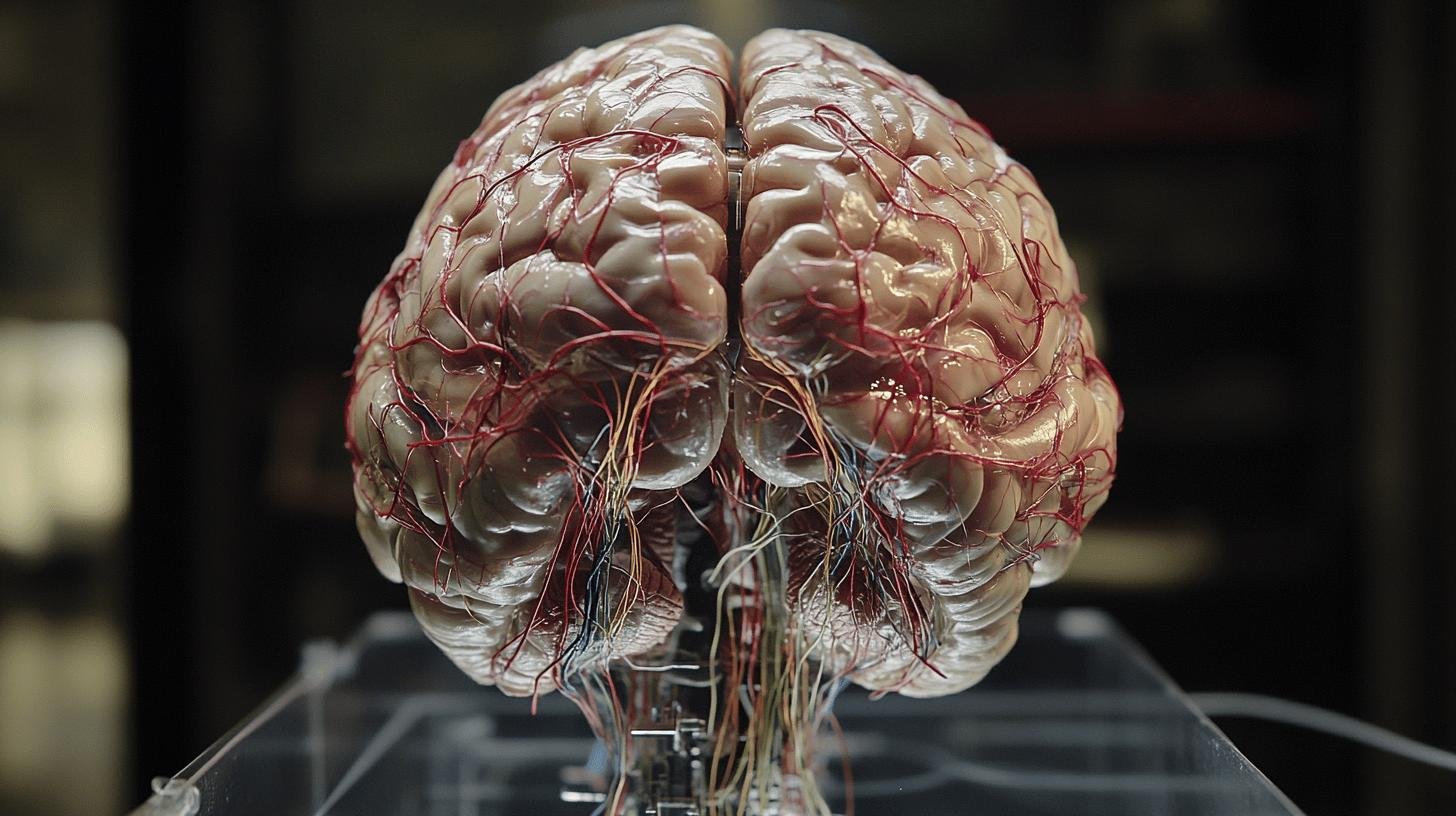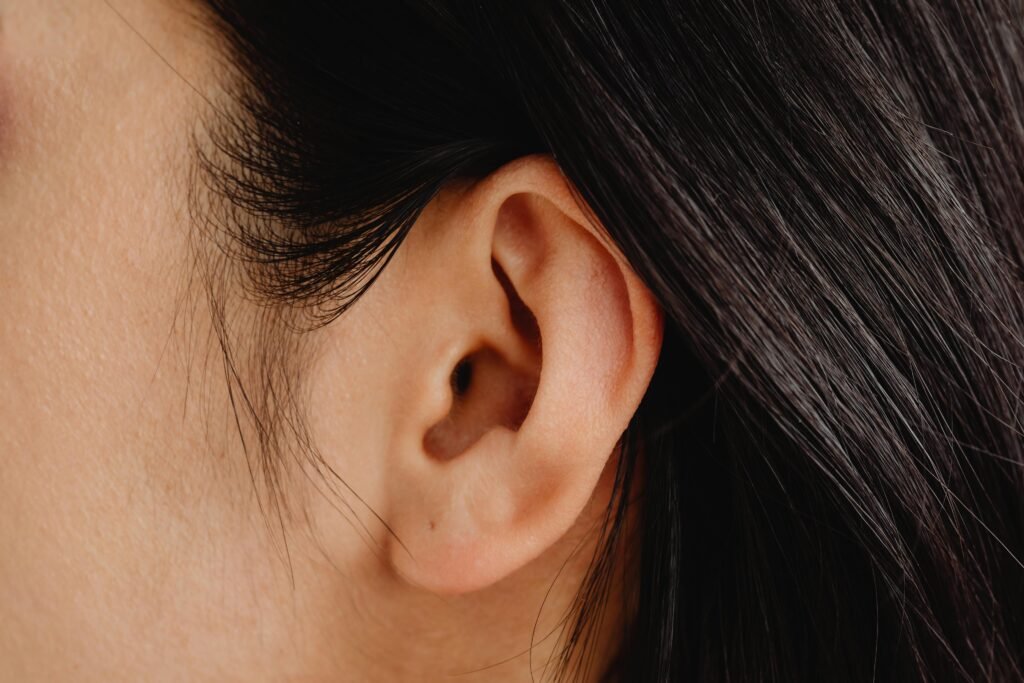TL;DR:
- Neurological disorders like multiple sclerosis, acoustic neuroma, and Parkinson’s disease can lead to sensorineural hearing loss.
- Common symptoms include muffled sounds, ear ringing, difficulty understanding, and increased volume needs.
- Diagnosis involves audiometric tests and possibly MRI scans.
- Hearing loss impacts vary by condition:
- Multiple Sclerosis: Demyelination affects auditory pathways.
- Parkinson’s Disease: Potential sensorineural hearing loss.
- Stroke: Sudden hearing loss depends on the affected brain region.
- Tinnitus can be linked to multiple disorders, including Meniere’s disease and Alzheimer’s.
- Direct primary care offers personalized treatment options and continuous support for managing hearing issues.
Ever notice how we rarely think about our hearing until something goes wrong? It’s like that old saying, “You don’t miss the water till the well runs dry.” In this post, we’ll dive into what neurological diseases cause hearing loss and what that means for you. Well, hearing loss can totally sneak up on you, especially when neurological disorders are at play. Yep, certain brain conditions can mess with how we hear the world around us. Crazy, right? Ready to get the lowdown on how your noggin might affect your eardrums? Let’s get started!
Neurological Disorders and Their Impact on Hearing
Ever wondered how neurological disorders affect your hearing? Let’s explore this! Conditions like multiple sclerosis, acoustic neuroma, and Parkinson’s disease can cause hearing loss. This occurs when these diseases disrupt the brain’s cochlea or auditory pathways. It’s fascinating how one part of our body affects another, isn’t it? Depending on the specific disease and its progression, the result is often sensorineural hearing loss. This type of hearing loss occurs when the brain and ear aren’t communicating well.
So, how do you know if your hearing issues are linked to a neurological disorder?
Here are some common symptoms to watch for:
- Muffled sounds
- Ear ringing
- Difficulty understanding words
- Needing to increase volume levels
These symptoms signal that something is wrong with your hearing. What should you do when these appear?
The first step is getting a diagnosis, which is like solving a puzzle. Doctors use audiometric tests to check your hearing at different sound levels and pitches. They might also recommend MRI scans to examine your brain and auditory pathways. Sometimes, they even assess your balance, as it’s connected to your ears!
Understanding these diagnostic methods helps you know what to expect and why they’re essential. Early detection allows you to manage the issue better with your healthcare team. So, if you notice any symptoms, it’s time to get checked. Your ears—and your brain—will appreciate it!
Hearing Loss in Multiple Sclerosis and Other Brain Disorders

How does multiple sclerosis affect hearing? It involves a process called demyelination, where the protective coating around nerve fibers—the myelin—is damaged. This damage impacts auditory pathways, the nerves carrying sound from your ears to your brain. When these pathways are disrupted, it’s like having static on a radio; the signals don’t pass correctly, leading to hearing loss. Multiple sclerosis is a common culprit when discussing how neurological diseases impact hearing.
Here’s a quick look at how different brain disorders affect hearing:
|Disease|Hearing Impact|
|—|—|
|Multiple Sclerosis|Demyelination affecting auditory pathways|
|Parkinson’s Disease|Potential sensorineural hearing loss|
|Stroke|Sudden hearing loss depending on the affected brain region|
The central auditory system acts as the brain’s sound technician. It connects the ear’s cochlea to the brain’s auditory cortex. These pathways are complex, explaining why brain disorders significantly impact hearing. The signals telling your brain what you’re hearing can get scrambled when things go awry. It’s like a game of telephone gone wrong! Keeping these pathways in check is vital. Understanding a brain disorder’s impact on hearing helps you and your doctor monitor your overall health.
Acoustic Neuroma and Tinnitus in Neurological Diseases
Have you heard of acoustic neuroma? It’s a non-cancerous tumor that forms on the auditory nerve. This tumor can lead to hearing loss, acting like an uninvited guest that sometimes requires surgery to remove. Although it grows slowly, it can silently affect hearing over time. Surgery is the usual treatment, but early detection significantly improves outcomes.
So, which neurological diseases are linked to tinnitus?
- Meniere’s disease
- Multiple Sclerosis
- Acoustic neuroma
- Traumatic brain injury
- Alzheimer’s disease
Managing tinnitus, which is a persistent ringing or buzzing, is challenging. It’s like a mosquito buzzing that you can’t hit! Tinnitus is a symptom of various neurological conditions. Figuring out its cause can be complex. This is where direct primary care excels, offering a more personalized approach to address tinnitus.
How does direct primary care help? It allows more time with your doctor for a detailed look at your symptoms. You’ll get a tailored plan, possibly including sound therapy, cognitive behavioral therapy, or hearing aids. By focusing on you rather than a ticking clock, this model allows for more personalized and effective strategies. It empowers patients, turning what feels like a losing battle with tinnitus into a manageable condition.
Sudden Hearing Loss and the Role of Direct Primary Care

What’s the concern with sudden hearing loss? It’s when your ears suddenly go silent, demanding immediate attention. Sudden sensorineural hearing loss can occur overnight, often linked to neurological issues like viral infections or blood flow problems in the ear. Rapid response is crucial, as prompt attention increases the chances of regaining some hearing. Think of it as a fire alarm you can’t ignore!
Why consider direct primary care for this? Let’s break it down:
- Accessible and prompt care
- Cost-effective treatment
- Personalized patient education and follow-up
These advantages make direct primary care a smart choice for managing sudden hearing loss and other neural hearing disorders. You get direct access to your doctor without insurance hurdles, leading to more focus on you. Your care plan is customized to suit you in the long term. Plus, you receive ongoing education about your condition, ensuring you’re an active participant in managing your health.
Evaluating and Treating Neurological Causes of Hearing Loss
How do you evaluate hearing loss related to neurological diseases? It’s like unraveling a mystery. Identifying the cause is vital for effective treatment. This process involves neurological evaluations, audiometric tests, and sometimes MRI scans to study the brain and auditory pathways. These tests determine whether the issue is in the ear or deeper within the neurological system. It’s about connecting dots to figure out what’s affecting your hearing.
Here’s a summary of treatment options for various neurological conditions:
|Condition|Treatment Option|
|—|—|
|Acoustic Neuroma|Surgery|
|Multiple Sclerosis|Medication, hearing aids|
|Meniere’s Disease|Dietary changes, medication|
|Sudden Hearing Loss|Steroids, hearing aids|
How does direct primary care fit in? It’s like having a healthcare partner providing a personal touch. For hearing loss linked to neurological conditions, this means more time with your doctor to tailor a treatment plan. Options might include selecting the right hearing aids or managing medications that improve your hearing while treating the condition.
Direct primary care offers continuous management and support, focusing on regular check-ups and adjusting treatments as needed. It also empowers you with knowledge, helping you understand your condition and take charge of your health. In direct primary care, you’re not just another patient but a partner in your health journey, ensuring you’re always heard—literally and figuratively.
Final Words
Exploring what neurological diseases cause hearing loss revealed interesting connections between the brain and hearing. We dove into how conditions like multiple sclerosis and acoustic neuroma impact auditory pathways and the central auditory system. Plus, we tackled the urgent nature of sudden hearing loss and highlighted the value of direct primary care. It’s clear that understanding these impacts and using effective management approaches can make a real difference. Here’s to embracing knowledge and finding proactive ways to tackle hearing issues—keeping our ears open to the world!
FAQ
What are the symptoms of nerve damage in the ear?
Nerve damage in the ear often results in symptoms like hearing loss, tinnitus (ringing in the ears), dizziness, and difficulty understanding speech, especially in noisy environments.
What is auditory neuropathy spectrum disorder?
Auditory neuropathy spectrum disorder (ANSD) is a condition where sound enters the inner ear normally, but nerve impulses fail to travel properly to the brain, causing hearing inconsistencies.
What are the symptoms of auditory neuropathy?
Symptoms of auditory neuropathy may include difficulty hearing in noisy places, fluctuating hearing levels, and poor speech perception despite having normal hearing thresholds.
How is auditory neuropathy treated?
Treatment options for auditory neuropathy include hearing aids, cochlear implants, and tailored auditory training programs to improve communication skills.
Can auditory neuropathy occur in adults?
Yes, auditory neuropathy can affect adults. Treatment usually focuses on communication strategies and, depending on the severity, may involve hearing aids or cochlear implants.
Is auditory neuropathy considered a disability?
Auditory neuropathy can be considered a disability as it significantly affects communication and social interactions, necessitating consideration for accessibility accommodations.
What is ear nerve damage surgery?
Surgery for ear nerve damage often involves removing growths or repairing physical damage to the auditory nerve, but it depends on the underlying condition causing the damage.
Why see a neurologist for hearing loss?
Seeing a neurologist for hearing loss is vital when it’s linked to neurological disorders, as they help pinpoint how brain or nerve issues affect hearing.
What is a neurological disorder of hearing loss?
Neurological disorders like auditory neuropathy and acoustic neuroma can directly impact hearing by disrupting the normal sound signal processing in the brain.
What are the three syndromes associated with hearing loss?
Common syndromes related to hearing loss include Meniere’s disease, Usher syndrome, and Alport syndrome, each with unique symptoms affecting the auditory system.
Can neurological hearing loss be fixed?
Neuro hearing loss fixability depends on its cause. Treatments like medication, hearing aids, or surgery may help, but full restoration isn’t guaranteed.

